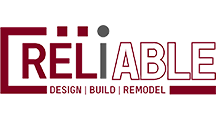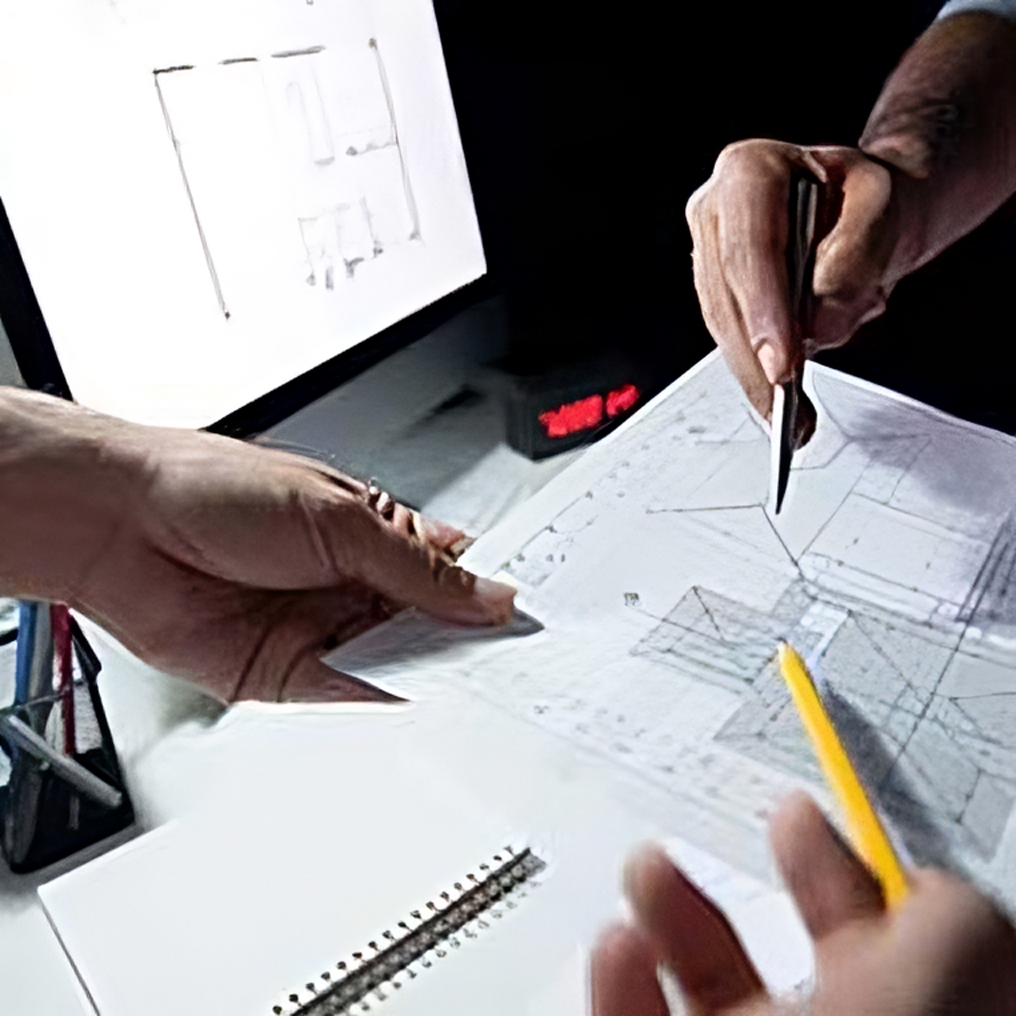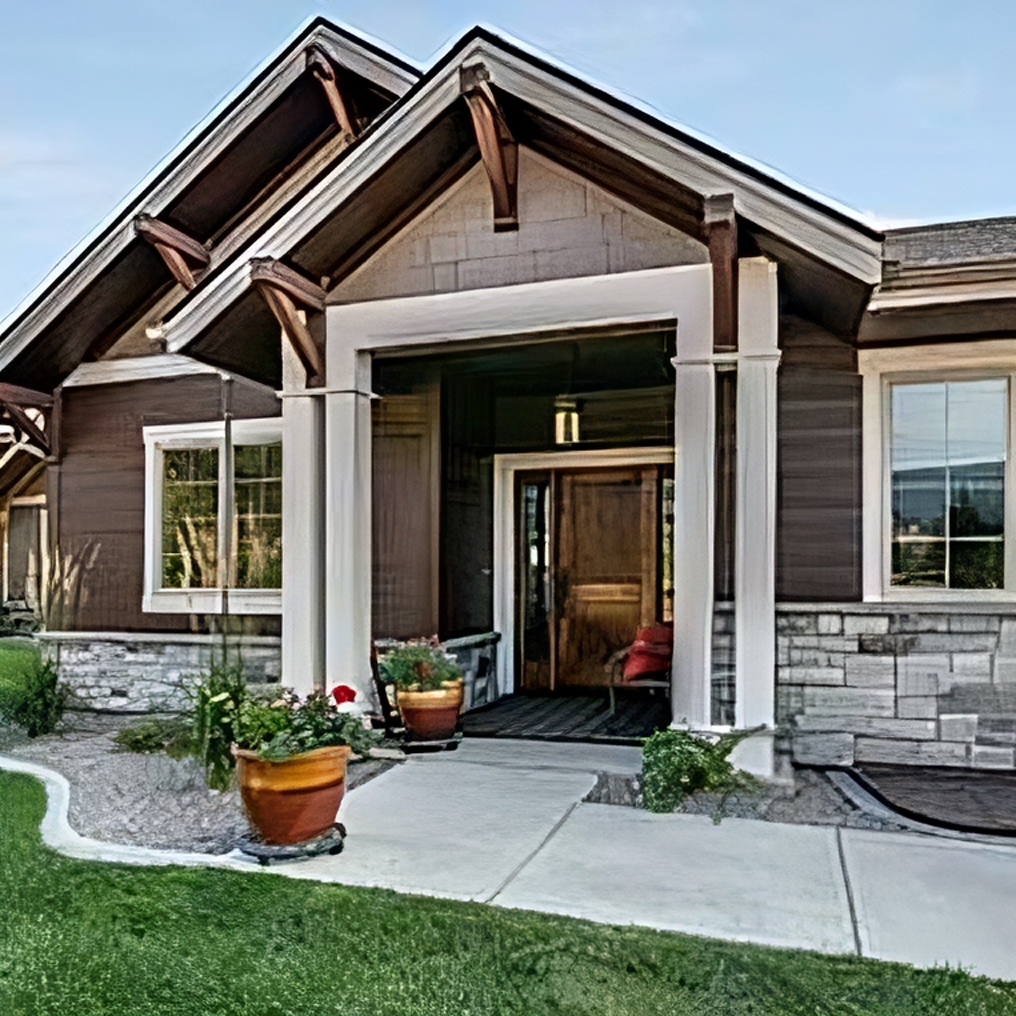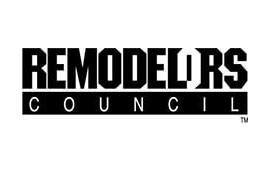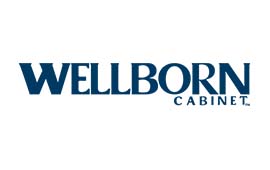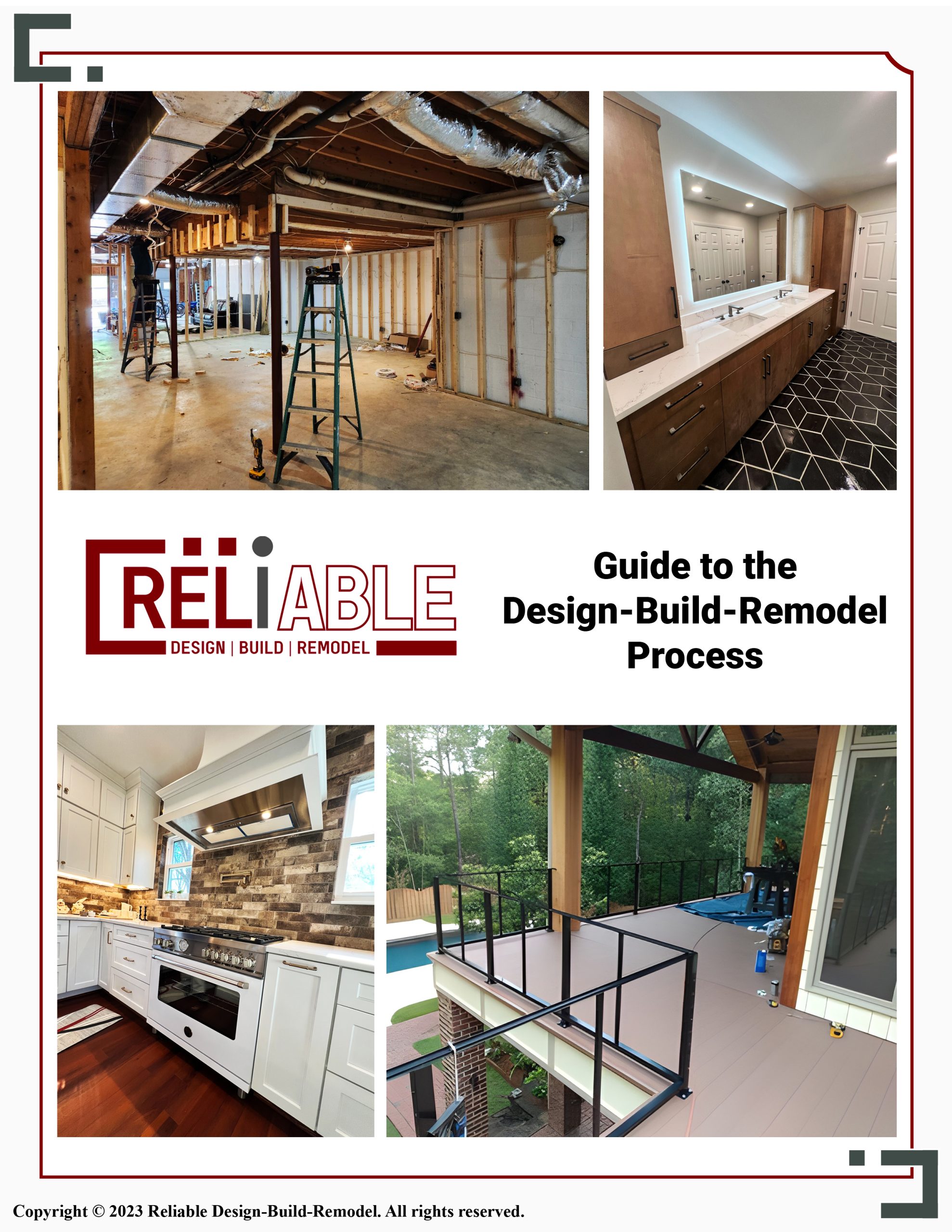When selecting flooring for your home, the debate between hardwood and luxury vinyl plank (LVP) is one that many homeowners face. Both options have their advantages and drawbacks, and making the right choice depends on your budget, lifestyle, and long-term goals. At Reliable Design-Build-Remodel, we understand the importance of balancing beauty, durability, and value in your home. In this blog, we’ll explore the key differences of hardwood vs. luxury vinyl plank by answering common questions homeowners have.
Is Luxury Vinyl Plank Flooring Better Than Hardwood Flooring?
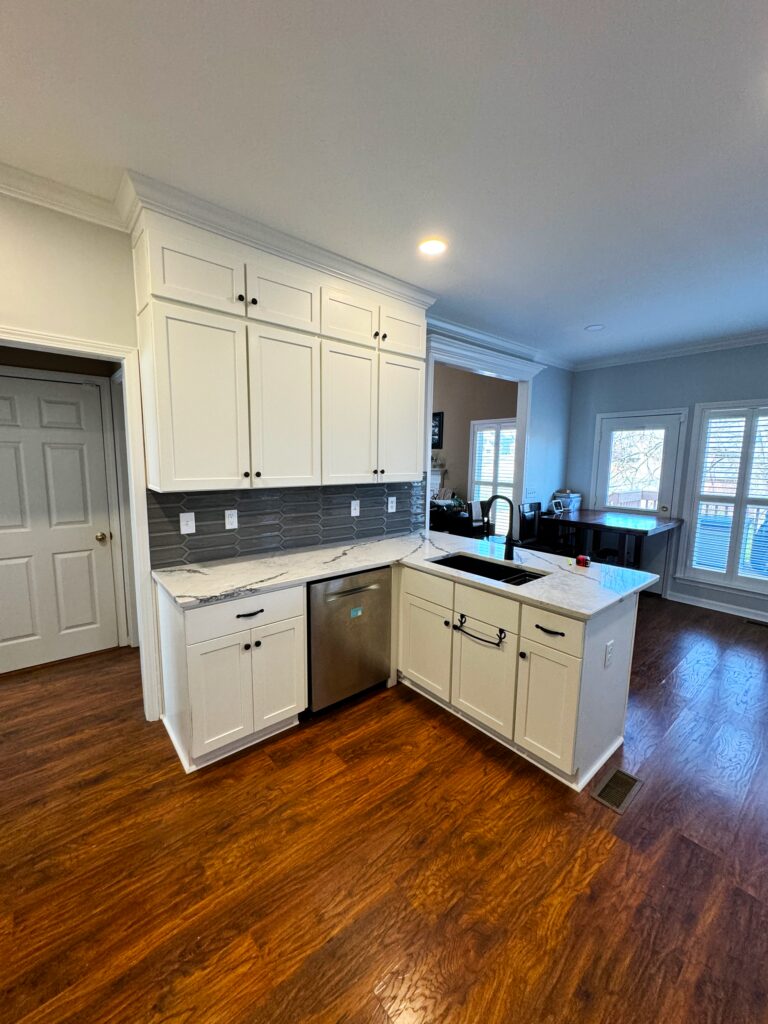
Luxury vinyl plank (LVP) flooring has gained popularity for its affordability, water resistance, and durability. Unlike hardwood, which is prone to scratches and moisture damage, LVP is designed to withstand heavy foot traffic, pets, and spills. It also mimics the appearance of real wood while being easier to maintain. However, hardwood flooring offers unmatched natural beauty, longevity, and a timeless appeal that LVP cannot fully replicate. The answer to whether LVP is “better” depends on your priorities—if you want authenticity and long-term value, hardwood is the superior choice, but if you’re looking for a more budget-friendly and resilient option, LVP is a great alternative.
What Are the Disadvantages of Luxury Vinyl Plank Flooring?
While LVP has many benefits, it also has drawbacks. One of the primary disadvantages is that it is not as durable as hardwood in the long run. Over time, LVP can wear down, especially in high-traffic areas, and while individual planks can sometimes be replaced, it won’t last for generations like real wood. Additionally, LVP can be prone to fading from UV exposure, which means homes with large windows may see discoloration over time. Unlike hardwood, which can be refinished multiple times, LVP cannot be sanded or restored once it wears out. Some homeowners also dislike the synthetic feel of LVP compared to the warmth and texture of genuine wood.
Do High-End Homes Use Luxury Vinyl Plank?
Luxury vinyl plank flooring is becoming increasingly popular in modern and mid-range homes, but it is less common in high-end or luxury homes. Premium homes typically feature real hardwood, natural stone, or high-end tile to maintain a sophisticated and upscale aesthetic. That being said, some high-end homes do incorporate LVP in specific areas, such as basements, rental properties, or secondary spaces where water resistance is a priority. Some higher-quality LVP options closely mimic hardwood and are used in upscale home renovations, but traditional hardwood remains the preferred choice for truly high-end residences.
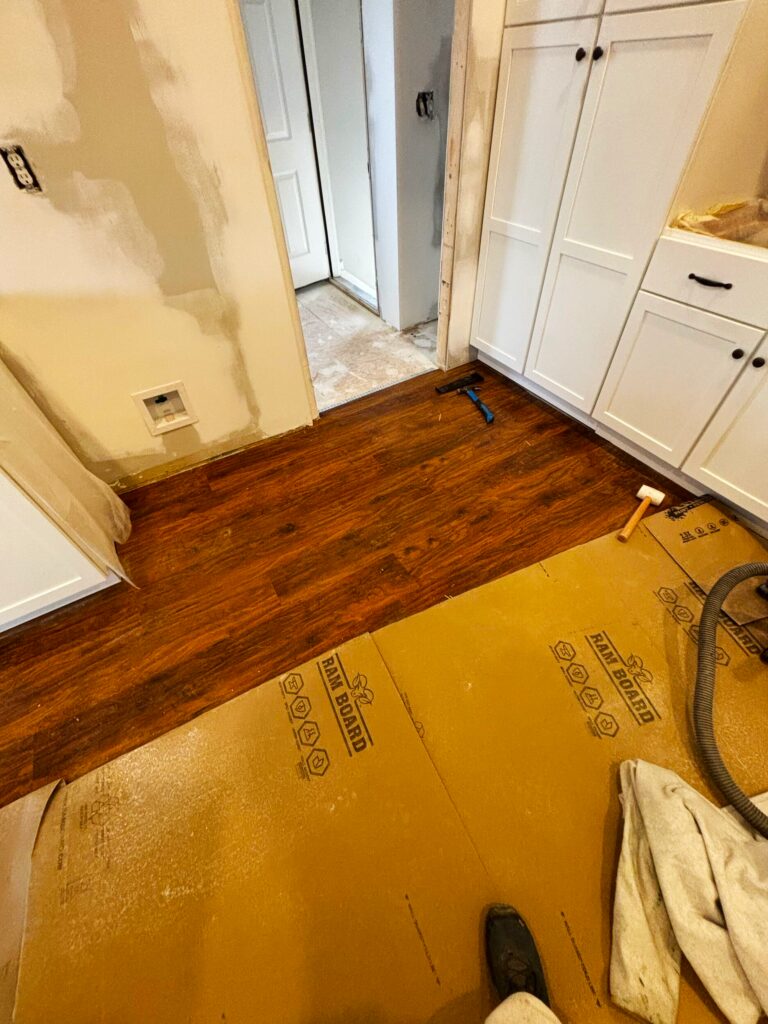
Does Luxury Vinyl Plank Devalue a Home?
LVP does not necessarily devalue a home, but it may not increase its value as much as hardwood flooring. Many buyers appreciate LVP for its practicality and affordability, especially in family homes with kids or pets. However, in real estate markets where buyers expect premium materials, LVP might not have the same appeal as hardwood. If replacing hardwood with LVP, it’s important to consider how this might affect resale potential. A well-installed, high-quality LVP can still boost the aesthetic appeal and marketability of a home, but it is unlikely to increase property value as much as genuine wood flooring.
Is Hardwood Better for Resale Value Than LVP?
Yes, hardwood flooring generally offers better resale value than LVP. According to real estate data, homes with hardwood floors tend to sell faster and at higher prices than those with LVP or carpet. Hardwood is considered a long-term investment because it can be refinished multiple times, maintaining its beauty for decades. Buyers often perceive real wood flooring as a premium feature, making homes with hardwood more desirable. While LVP can still be an attractive feature for certain buyers, particularly those looking for low-maintenance or pet-friendly homes, it doesn’t offer the same level of prestige and resale value as hardwood.
What Flooring Looks the Most Expensive?
When it comes to flooring that exudes luxury and sophistication, a few options stand out. Wide-plank hardwood floors, exotic wood species like Brazilian cherry or walnut, and natural stone tiles are some of the most high-end choices. Herringbone and chevron-patterned hardwood floors are also considered elegant and timeless. If you’re considering LVP but want it to look more high-end, opting for wide planks with realistic wood grain textures and matte finishes can create a more refined look. However, in general, hardwood and natural stone tend to be the most luxurious-looking flooring options for high-end homes.

Choosing between hardwood and luxury vinyl plank depends on your specific needs and goals. If you want a cost-effective, water-resistant, and low-maintenance flooring solution, LVP is a strong contender. However, if your priority is long-term value, timeless beauty, and higher resale potential, hardwood remains the best choice. At Reliable Design-Build-Remodel, we specialize in helping homeowners make the best flooring decisions for their homes. Whether you’re looking to install hardwood, LVP, or another flooring material, our team is here to guide you every step of the way.
Reliable Design-Build-Remodel is a full service general construction firm and remodeling contractor operating in the Birmingham metro and Jefferson and Shelby County areas and surrounding communities, including Birmingham, Helena, Chelsea, Mountain Brook, Hoover, Homewood, Montevallo, Alabaster, Vestavia Hills, and Pelham, with over 30 years of servicing our valued clients. Offering full service suite of general remodeling, design and build services. Our specialties include bathroom remodeling, kitchen remodeling, exterior renovations, interior renovations, painting, and more!
Visit us at reliablerem.com, and like and follow us on Facebook and Instagram! Thank you for reading our blog about hardwood vs. luxury vinyl plank!
